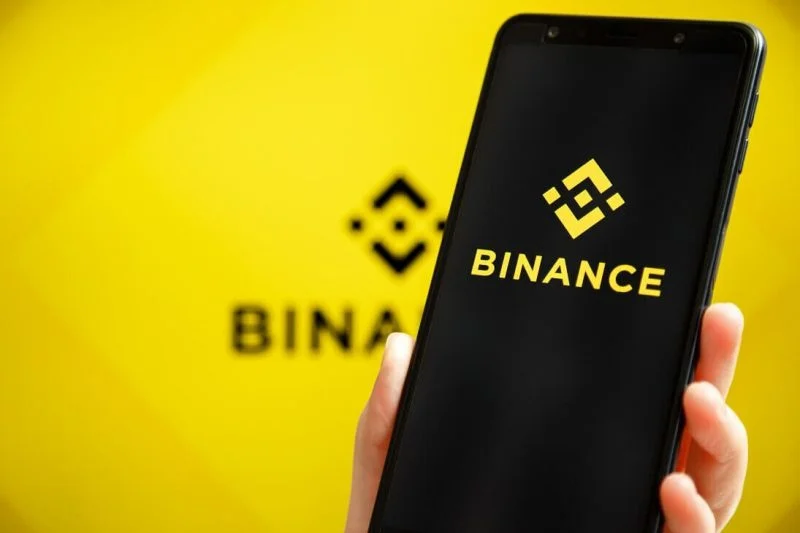Generated Title: Trump's Binance Pardon: A Data Dump on the "Unprecedented Corruption" Claims
The Numbers Game of Presidential Pardons
The pardon of Binance founder Changpeng Zhao (CZ) by former President Trump has triggered a predictable storm of outrage. Former DOJ pardon attorney Elizabeth Oyer called it "corruption," citing financial ties between Binance and Trump-linked ventures. But let's strip away the rhetoric and see if the data supports the "unprecedented" claim.
Oyer's core argument, repeated across multiple news outlets, is that the pardon bypassed traditional Justice Department guidelines and was influenced by money. She points to Binance's donation of software to World Liberty Financial (WLF), a Trump-linked crypto venture, and a subsequent $2 billion investment in Binance paid in WLF crypto (USD1). Is this smoking-gun evidence of a quid pro quo?
First, the "donation" of software. According to WLF's lawyers, Binance supplied "freely available" software. The key word here is "freely available." While the timing is suspect, the actual value of this contribution is likely minimal. It's a data point, but a weak one.
Next, the $2 billion investment. This is where things get more interesting. An Emirati fund poured this sum into Binance, paid entirely in USD1. But here’s the rub: the source material doesn't clarify if Binance accepted this investment in USD1, or if they immediately converted it to another currency. If Binance held onto a significant portion of USD1, it would directly benefit from the success of WLF. If they immediately diversified, the connection is weaker, and the benefit to Binance is less direct. We need more data on Binance's post-investment USD1 holdings to assess the true impact.
The ICIJ’s Coin Laundry report found that Binance facilitated at least $408 million worth of tether (USDT) transactions for the organized crime-linked Huione Group between July 2024 and July 2025. This is after CZ's guilty plea but before his pardon. The question the report asks is whether exchanges are doing enough to stop illicit flows.
The Oyer Factor: Scrutinizing the Source
Now, let's examine the source of the corruption claim: Elizabeth Oyer. Trump Pardon for Binance CEO Was ‘Corruption’—Former DOJ Pardon Attorney She was fired in March 2025 after refusing to recommend restoring gun rights to Mel Gibson (who hadn't even submitted a traditional application, according to Oyer). The DOJ denies the firing was related to the Gibson matter.

Here's where I find myself wearing my skeptical hat. Oyer claims armed U.S. Marshals were sent to her home to deliver a warning letter regarding her testimony (while her teenage child was home alone, no less). While dramatic, this claim lacks independent verification. It's Oyer's word against the DOJ's. This doesn't invalidate her concerns about the pardon, but it does raise questions about the objectivity of her narrative. We also have to consider the timing of her statements. Is her criticism driven by genuine concern, or is it partly fueled by the circumstances of her dismissal?
The article also mentions Senators Warren and Reed taking issue with "shady actors" in WLF's initial token offering. Crypto investigator ZachXBT points out that these claims focus on $10,000 from a $550 million deal. That's 0.0018% of the deal. A rounding error, essentially. It's a discrepancy that undermines the claim of widespread corruption.
CZ himself has stated that if Binance gets any refund from the $4.3 billion fine, he will invest it in America. He hasn't asked for a refund yet. His lawyer, Teresa Goody Guillen, stated that the pardon was issued because the prosecution should not have occurred under the circumstances of his case. She dismissed any rumors of corruption.
The "Unprecedented" Label: A Premature Verdict
Is the Trump pardon of CZ "unprecedented corruption"? Based on the available data, the evidence is circumstantial at best. The financial connections between Binance and Trump-linked entities are undeniable, but the magnitude of the benefit and the directness of the quid pro quo remain unclear.
The $4.3 billion fine Binance paid (which CZ suggested he would reinvest "in America" if refunded) is a significant figure. But how does it compare to other settlements involving presidential pardons? This is the missing piece of data. Without a comparative analysis of past pardons and associated financial settlements, the "unprecedented" claim remains speculative.
Is there smoke? Absolutely. But is there a smoking gun? The data isn't conclusive.
So, What's the Real Story?
The outrage is disproportionate to the data. The financial connections are murky, the "corruption" claims are based on circumstantial evidence, and the "unprecedented" label is premature. The entire narrative feels more like politically motivated noise than a data-driven indictment.
